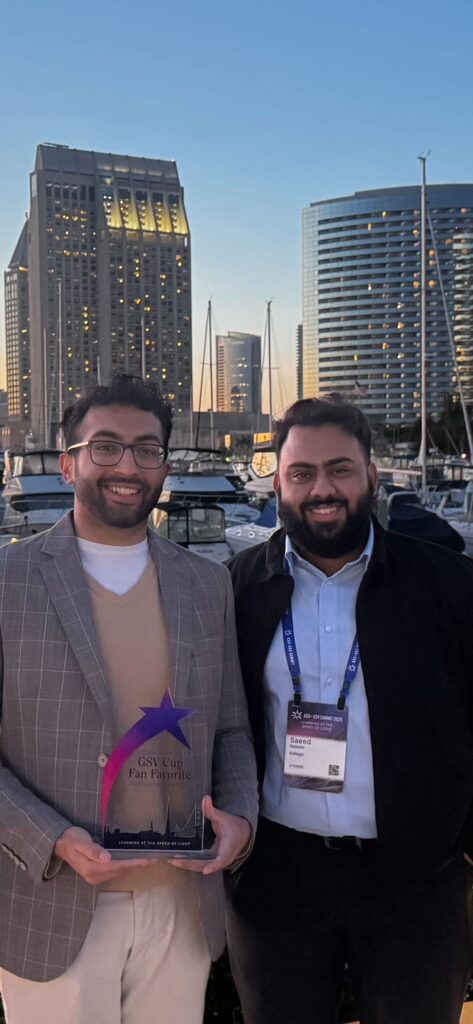When Senan Khawaja was in college a few years ago, he started a service counseling prospective college students on how to get into their desired institutions. He eventually built a small team with hundreds of clients, “but helping the wealthiest students get into top colleges wasn’t something I was super-passionate about.”
When the generative artificial intelligence phenomenon hit, “I saw the possibility to provide the level of personalized guidance traditionally reserved for the very wealthiest of society to millions of students,” said Khawaja (pictured, left, with Chief Technology Officer Saeed Naeem).
Two years later, his startup, Kollegio AI Inc., has done exactly that for nearly 100,000 students from all 50 U.S. states and 190 countries. Although the company has yet to formulate a revenue model, investors have seen enough potential to invest $2.8 million into a seed round led by NewSchools Capital LLC, which does business as Reach Capital, with participation from JFFVentures, ECMC Group Inc., and Tuesday Capital Management LLC. That brings its total startup funding to $3.55 million.
Counseling gap
Kollegio is attacking what Khawaja sees as a gaping disparity between the haves and the have-nots. The national average student-to-counselor ratio is 376-to-1, well above the 250-to-1 average recommended by the American School Counselor Association. More concerning is that one-quarter of U.S. high schools lack a single counselor. That leaves students pretty much on their own in navigating the maze of essays, documents and transcripts they must provide to have a shot at getting into a top college.
Private counselors typically charge thousands of dollars for the services. Kollegio aims to provide service of comparable quality at no charge.
The website, which has been promoted primarily through social media, has proved popular with the group Khawaja is trying to reach. Since its launch last August, two-thirds of students using the platform have come from households making less than $100,000 in annual income.
“We may help you as early as your freshman or sophomore year in high school to match what you can access and what your family can pay,” he said.
Feedback emulation
Kollegio maintains records on 1,650 U.S. institutions, including campus life, ranking and reputation, affordability and available financial support, and graduate careers. It uses OpenAI LLC and Anthropic PBC large language models fine-tuned with about 300 counseling-related documents. The system prompts students through the application process and advises on essays, although it doesn’t write them.
“You share information about what you want to study, your background obstacles and such,” Khawaja said. “At no point do we write essays for the student. We’re emulating the experience of giving feedback.”
Kollegio currently doesn’t have a revenue model. Khawaja said the site will likely charge institutions for services. “As long as I’m in control, I want to keep it free for students,” he said.
He also hopes to expand internationally into broaden Kollegio’s scope to include trade schools, community colleges, boot camps and other post-secondary options. “The vision is to do it all, including work after high school,” he said.
Photo: Kollegio
Your vote of support is important to us and it helps us keep the content FREE.
One click below supports our mission to provide free, deep, and relevant content.
Join our community on YouTube
Join the community that includes more than 15,000 #CubeAlumni experts, including Amazon.com CEO Andy Jassy, Dell Technologies founder and CEO Michael Dell, Intel CEO Pat Gelsinger, and many more luminaries and experts.
THANK YOU


